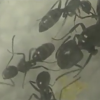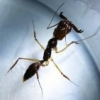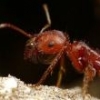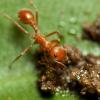Official Guide to Hibernation
Hello all. I’ve decided to piece together an official guide for hibernation instead of everyone asking questions and answers being spaced out between multiple threads. I don’t know the exacts, and hibernation is still new to me. But I have done a lot of research, and would like to pass it along. This information in this thread is gathered from across the forums, and google searches.
I would greatly appreciate it if anyone can chime in with some corrections, or any additional information that would help.
These are all suggestive numbers.
Time Period: Nov 1 – Mar 1 (Variant on location)
Temperature: 40-65°F (5-18°C) (Variant on location)
Techniques: Fridge, Wine cooler, basements, crawlspaces.
“Heated Garage for hibernation” – T.C.
Exceptions: Some species don’t require hibernation even though they live in colder locations were ants normally hibernate.
“There are some species of ants that are better equipped to live in cold temperatures than others. Ants that live in the lower parts of the United States do not generally have to worry about temperatures below freezing and only have to hibernate for a short period of time. Other ants that live in areas of New England and into Canada have to withstand temperatures that drop below 0. These ants are able to stay alive because their bodies produce a type of anti freeze that helps to keep them warm” – AntsMAN
Before Care
“Most species of ants eat a large amount of food in autumn to put on fat, allowing them to go without food through the winter. The entrance to the nest is closed as a result of the slowdown” – AntsMAN
Care During Hibernation
“Throughout the hibernation period, your ants won’t require any food, however they do still require water. Therefore, unless your ants are in a test tube setup, you must ensure the formicarium continues to stay moist like usual, which means you may have to check up on the formicarium on a regular basis to ensure the colony is properly hydrated. The good news is that a cold nest doesn’t lose moisture as quickly as a warm or room temperature formicarium, so you won’t have to water the nest as frequently as you’re used to during the warmer months” – AntsMAN
Q/A:
What happens if you don’t hibernate?
Without hibernation the colony will still slow down and the queen will rest, to a certain point. Without hibernation the life span of the queen is drastically reduced. It's like running a machine non stop with no maintenance, eventually something has to break. Hibernation gives the colony a chance to recuperate, and prepare for the coming year – AntsMAN
Should i hibernate my ants in their entire formicarium, or try to relocate them into a test tube?
Depends on the size of the colony. If my colony is small enough to fit in a test tube, they usually live in a test tube and I hibernate them in that.
If they are already in a formicarium, I just leave them in and ensure it stays moist. - Crystals
Maybe drew can sticky this?
Edited by Loops117, October 27 2016 - 6:28 AM.





























